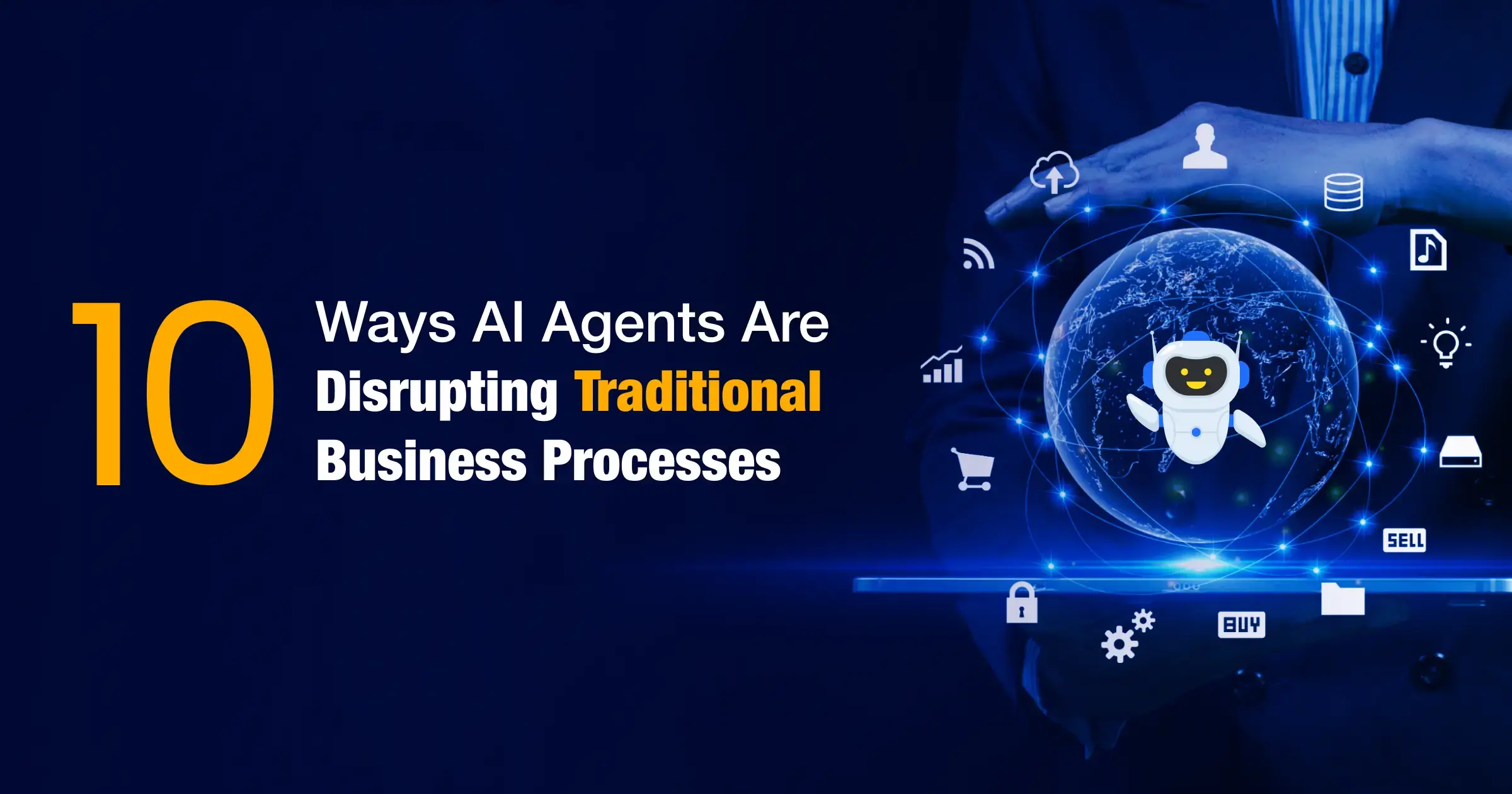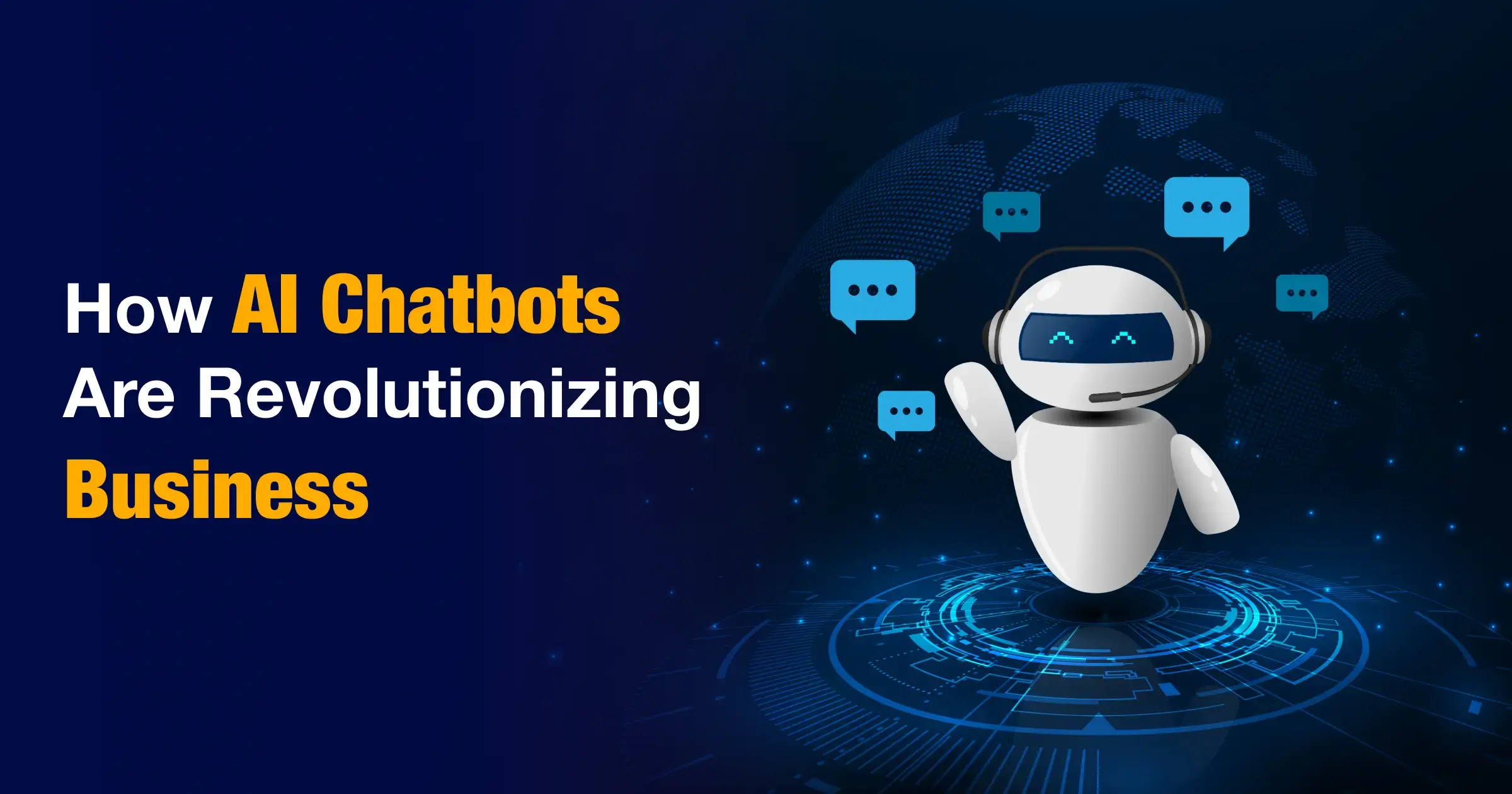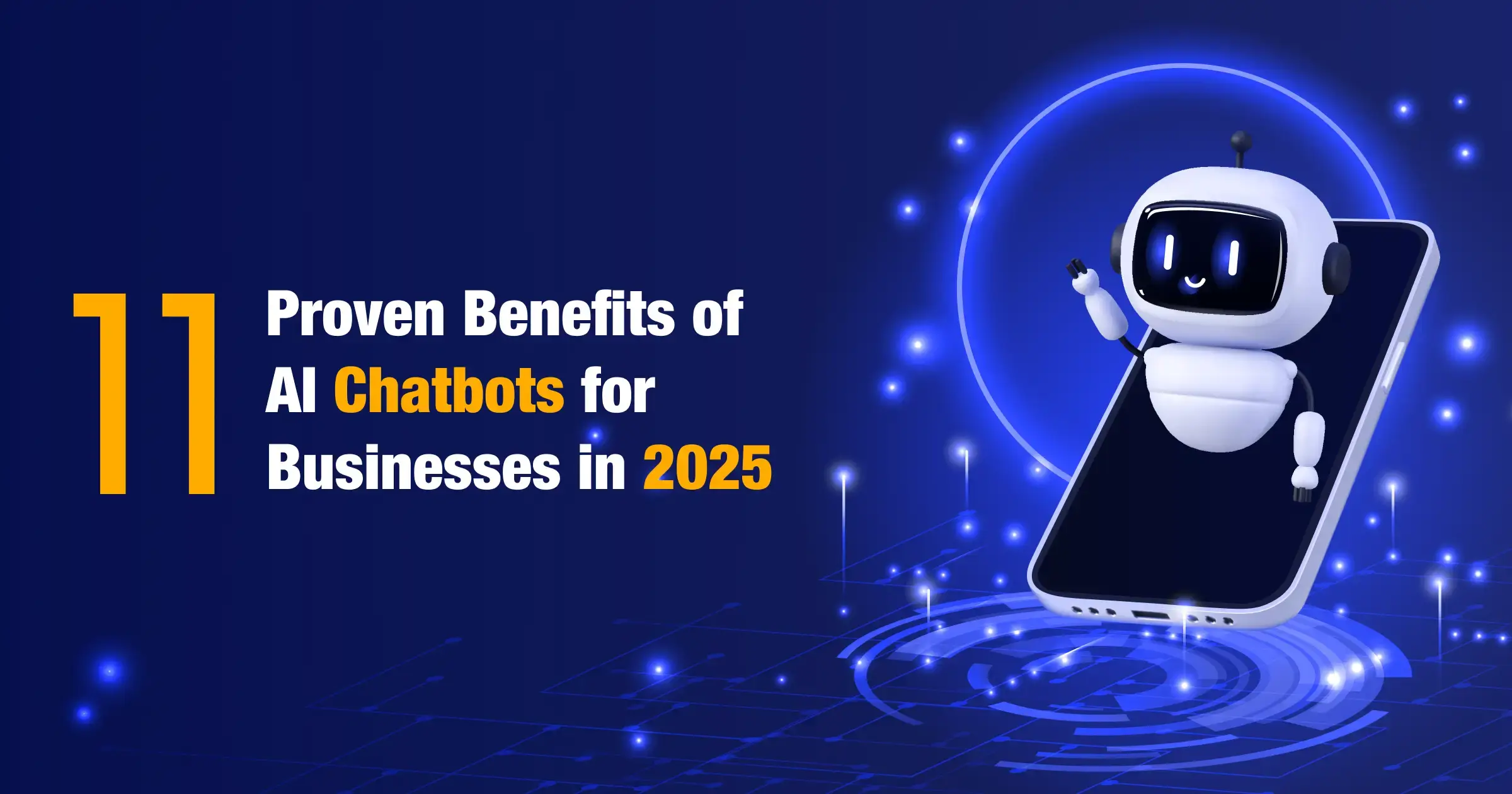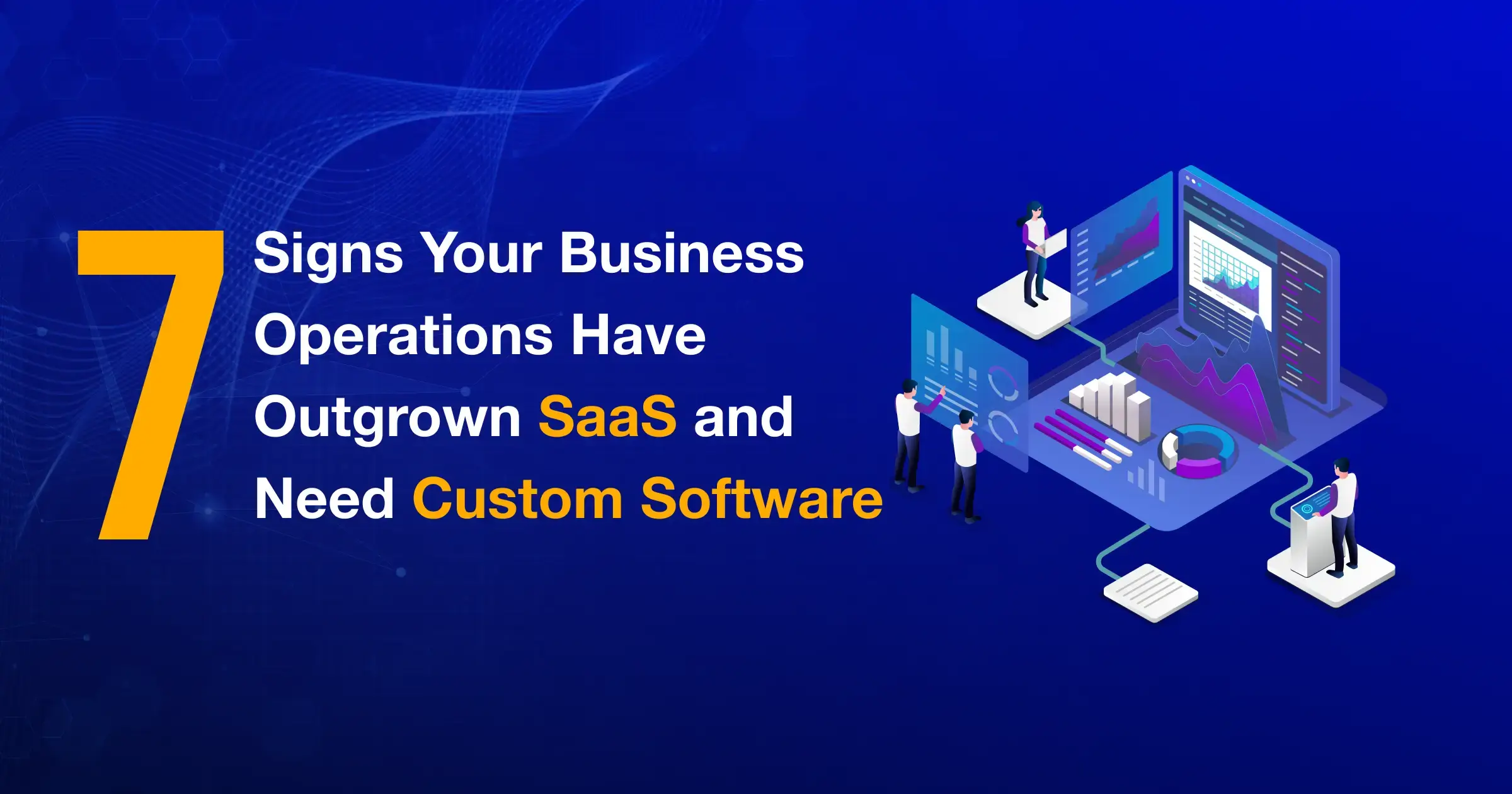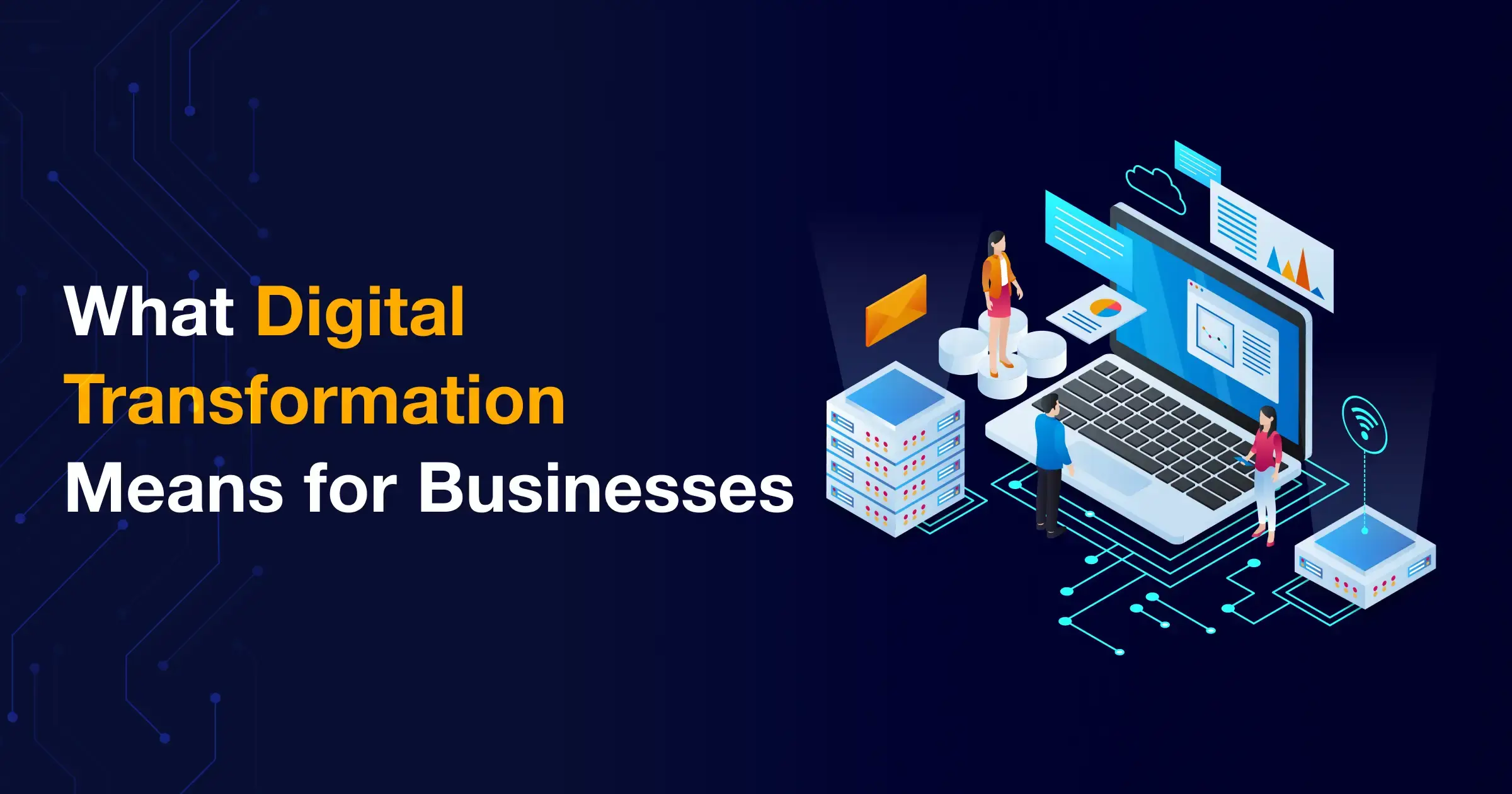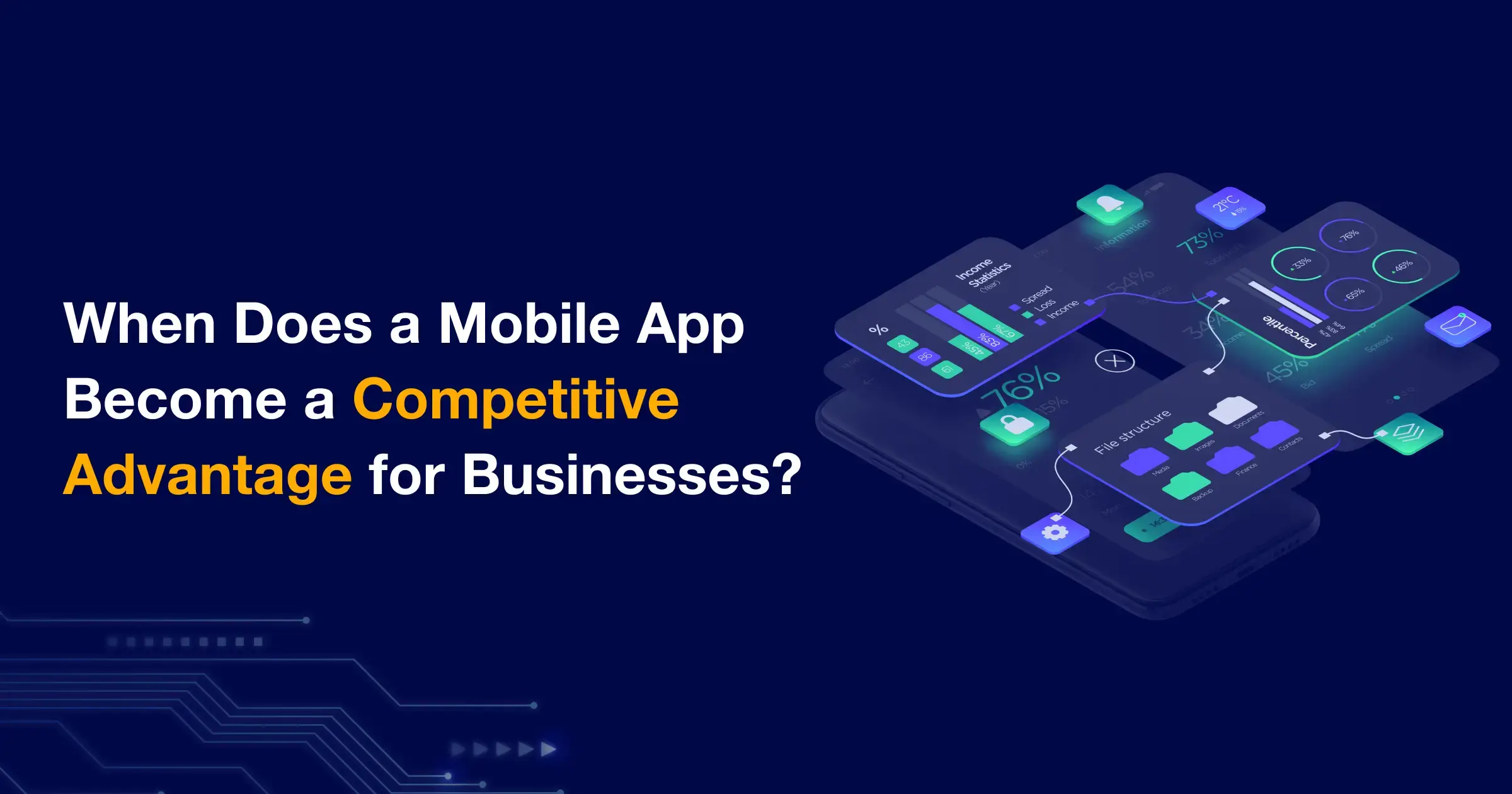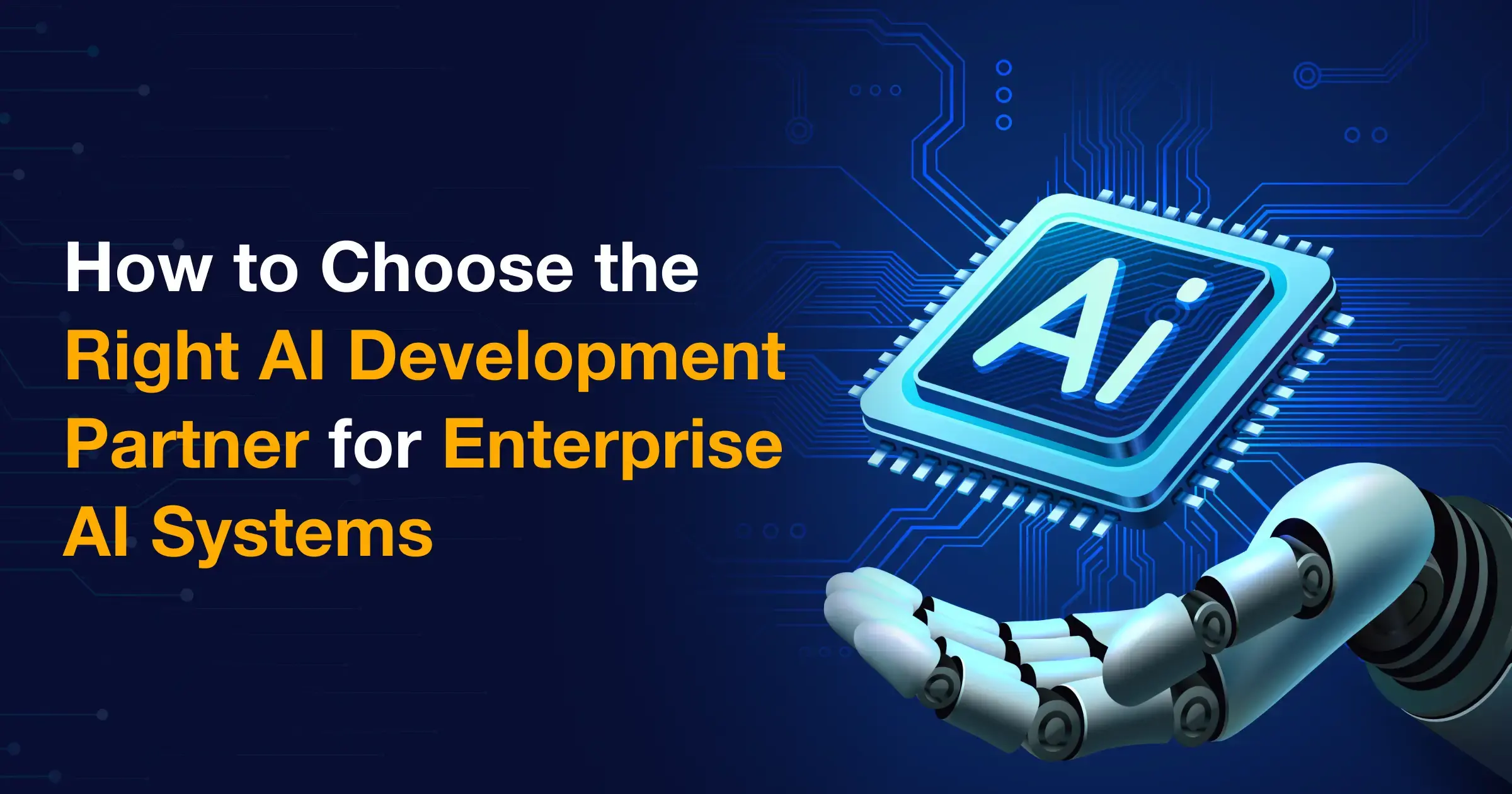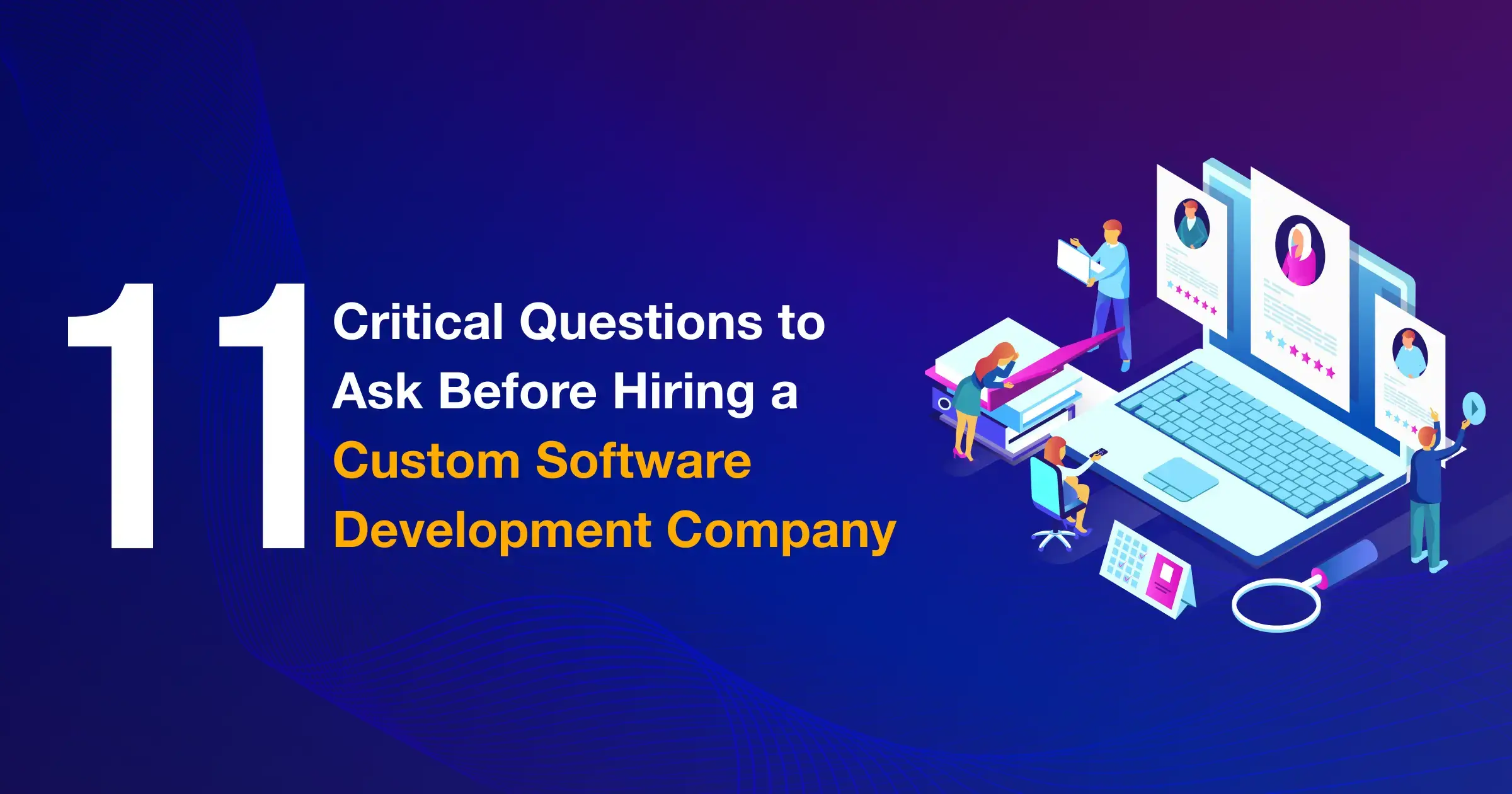
AI agents are redefining traditional businesses like never before. From automating repetitive tasks to making real-time, data-driven decisions, these intelligent systems work around the clock and adapt on the go. With this, businesses are no longer just using tools, but they are collaborating with AI agents to boost efficiency and stay ahead.
Introduction
As business moves fast, the pressure to stay efficient, cut costs, and deliver more with less has never been greater. That is where AI agents come in.
They are not just fancy tools. These agents can think, decide, and act on their own. They don’t wait for instructions. They analyze what’s going on, take the next step, and keep learning from every action.
Think of them like digital teammates. They handle tasks you used to assign to entire departments, things like replying to customer messages, reviewing job applications, or even planning your next campaign.
What makes AI agents different is their ability to work without constant human input. They’re built to understand goals, take action, and adjust when things change. No micromanaging needed.
Today, smart businesses use them to handle the routine stuff and even help with big-picture decisions. It’s not about replacing people. It’s about making humans and machines work better together.
AI agents are changing the way how work gets done traditionally. And it’s happening right now.
You have probably seen bits of this shift already. Maybe it’s a chatbot that actually understands your questions. Or a tool that helps your team respond faster. These are early signs. Now imagine that kind of intelligence applied across your entire business.
What is an AI agent in business?
An AI agent in business is a smart software program that can understand what is happening around, make intelligent decisions, and take action backed by data, all on its own. It helps teams get work done faster by handling tasks without needing someone to guide them every step of the way.
Why AI Agents are Becoming Essential for Modern Business

Business tools have come a long way. A few years ago, many companies relied on simple rule-based bots. These could only follow set instructions. If something unexpected came up, they stopped working or needed human help.
Now, things have changed. We’ve moved from basic bots to fully autonomous AI agents. These agents can understand what’s happening around them, make smart decisions, and take action without waiting for someone to step in. That’s a big leap.
The big push came with the rise of large language models, or LLMs. These models helped AI agents become more capable. They can now understand natural language, context, and even tone. This means they don’t just follow rules, they actually understand the task.
Another major shift is the use of multi-agent systems. Instead of one AI doing everything, multiple agents work together. One may collect data. Another may analyze it. A third might take action based on that insight. It’s like a team of virtual coworkers, each focused on one job, but working toward a shared goal.
This change didn’t happen overnight. Around 2018, businesses started using AI for basic automation, things like chat support and data entry. By 2020, tools got smarter and more flexible. Fast forward to 2025, and AI agents are now part of the core business workflow in many industries.
What makes them essential today is their ability to adapt, learn, and work without constant input. They save time, reduce errors, and give teams more room to focus on strategy.
AI agents aren’t just a tech upgrade. They’re changing how businesses operate from the inside out.
What are the Ten Ways AI Agents Disrupt Businesses Across Industries?
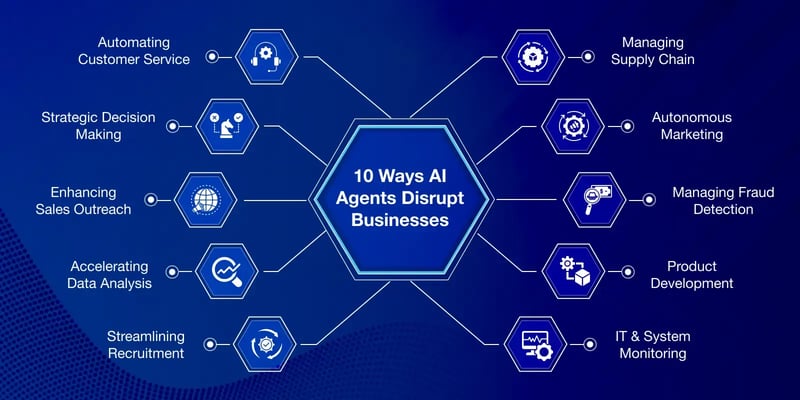
As the prevalence of artificial intelligence services is on the rise, many businesses, that include those from non-tech sectors too, are increasingly implementing AI to transform their businesses, more specifically AI agents. Here are 10 ways that AI agents redefine traditional business setups:
1. Automating Customer Service with AI Agents
Customer service used to be slow and hard to scale. Long wait times, tired support teams, and missed follow-ups were common. Now, AI agents are changing that.
These digital assistants, in the form of intelligent chatbots, talk to customers in real time, where they understand their questions, respond instantly, and keep conversations going without getting tired. They don't need breaks or reminders. They just keep working 24/7.
They also get smarter over time, thanks to reinforcement learning to train AI agents. They learn from every chat and handle more complex queries as they go. And when they hit a limit, they know when to loop in a human.
Key features:
- Handles chats, emails, and voice support around the clock
- Understands natural language and responds in real time
- Learns from past conversations to improve accuracy
- Escalates issues to humans when needed
2. Enhancing Sales Outreach with AI Sales Assistants
As sales teams spend a lot of time chasing leads, AI sales agents make things faster and smarter. They reach out to prospects through email, chat, or social media, and tailor messages based on what the person needs.
They also follow up automatically, which saves a lot of time and increases the chance of closing a deal. These agents work behind the scenes to collect data, track behavior, and even suggest next steps for human sales reps.
Key features:
- Sends personalized outreach at scale
- Tracks engagement and follow-up responses
- Suggests best time to contact leads
- Scores leads based on interest and behavior
3. Accelerating Data Analysis & Reporting with AI Agents
Digging through data usually takes time, as a result, your teams may often wait days to generate reports. However, using AI agents for data analytics indeed speeds things at an unprecedented level.
They pull data from different sources, look for patterns, and build summaries in seconds. They do not need code or complex tools to achieve this. Just assign them tasks, and get them done efficiently.
They also flag anything unusual, and in such a way, decision-makers know what’s working and what’s not, right when it matters.
Key features:
- Connects to multiple data sources
- Runs real-time analysis and alerts
- Generates easy-to-read summaries and charts
- Answers plain-language questions with data-backed responses
4. Streamlining Recruitment & HR with AI Hiring Assistants
Hiring takes time and effort, especially when it comes to reviewing resumes, scheduling interviews, and replying to candidates, which can slow things down. AI hiring assistants help speed this up.
They scan resumes, match skills to job roles, and even handle early screening questions. Some can even schedule interviews without human input.
This frees up HR teams to focus on people, not paperwork.
Key features:
- Scans and ranks resumes quickly
- Matches candidates to job roles based on skills
- Handles candidate communication and scheduling
- Gives shortlists based on job criteria
5. Optimizing Supply Chain Management with AI Agents in Logistics
Supply chains can be messy, if not properly managed. Delays, stock issues, and unexpected changes are common and can lead to several bottlenecks preventing the efficient functioning of a business.
AI logistics agents help manage these challenges as they track shipments, predict delays, and suggest better routes. They also watch stock levels and make sure inventory stays balanced.
This helps businesses avoid costly mistakes and keep things running smoothly.
Key features:
- Monitors inventory and supply movement in real time
- Predicts delivery delays using past data
- Suggests efficient routes for shipping
- Sends alerts when stock levels drop
6. Running Autonomous Marketing Campaigns with AI Agents
Marketing involves planning, testing, and adjusting. It’s a lot of work. AI marketing agents take on much of that load. They can create content, choose where to post it, and monitor how it's performing. If something’s not working, they tweak it. All without waiting for a manager.
They help brands stay visible and keep campaigns running, even on weekends.
Key features:
- Creates personalized campaigns for different audiences
- Posts on social platforms, email, and ads
- Tracks engagement and adjusts content
- Suggests the best time to post or promote
7. Managing Financial Transactions & Fraud Detection with AI Agents
Keeping track of every financial transaction is tough. So is spotting fraud before it happens. Here is where AI financial agents come in as they help with both. With the coming of advanced AI and software solutions for the financial industry, many of the core financial processes can be automated with efficiency.
AI agents review huge volumes of data instantly. If something looks off, they flag it. They also automate routine tasks like invoice checks and reconciliation.
This cuts errors and makes finance teams more confident in their numbers.
Key features:
- Reviews large transaction volumes quickly
- Flags suspicious or unusual activity
- Automates checks for compliance and accuracy
- Helps with reports and daily reconciliations
8. Supporting Product Development with AI Research Agents
Product teams need data to make the right decisions, but what challenges their task is gathering data and information which typically takes time. AI research agents, in such a case, step in to help.
They scan articles, forums, reviews, and databases to find trends. They bring back insights that help teams build features people actually want.
This makes the product development process faster and more focused.
Key features:
- Scans public and private data sources
- Summarizes user feedback and market trends
- Suggests new features based on demand
- Helps validate ideas before development
9. Automating IT and System Monitoring with AI DevOps Agents
As IT systems need constant attention, many businesses prefer IT outsourcing services from renowned companies. Because one small issue can lead to downtime and can affect entire operations of the business.
AI DevOps agents monitor systems day and night, where they watch for slowdowns, bugs, or security threats. When they find a problem, they either fix it or alert the right person.
This keeps systems healthy and reduces the pressure on IT teams.
Key features:
- Monitors apps, servers, and networks in real time
- Detects bugs or failures early
- Applies patches or restarts services automatically
- Sends alerts with clear context
10. Driving Decision-Making in Strategic Planning with AI Agents
Big business decisions need good information and thorough analysis. Robust data mining helps businesses dig deep through datasets and find meaningful patterns. AI agents can bring that to the table.
They gather data, compare options, and suggest paths forward. They help leaders understand risks, spot trends, and move faster. Instead of guessing, teams can act based on real insight.
These agents turn planning into something smarter and more proactive.
Key features:
- Pulls business and market data together
- Runs scenario planning based on goals
- Suggests options based on risk and opportunity
- Provides visual dashboards for easy review
A Quick Look at 10 Ways How AI Agents Transform Businesses
| # |
Business Area |
AI Agent Function |
Key Benefits |
| 1 |
Customer Service |
Handles chats, emails, and voice support |
24/7 instant responses, learns over time, reduces wait times, routes complex issues |
| 2 |
Sales Outreach |
Sends personalized messages and follows up |
Saves time, increases lead conversion, tracks engagement, prioritizes prospects |
| 3 |
Data Analysis & Reporting |
Pulls data, analyzes trends, builds reports |
Real-time insights, no coding needed, quick decision-making, early anomaly detection |
| 4 |
Recruitment & HR |
Screens resumes, schedules interviews |
Speeds up hiring, improves matches, handles admin tasks, gives candidate shortlists |
| 5 |
Supply Chain |
Tracks shipments, predicts delays |
Reduces risk, manages stock, optimizes routes, sends real-time alerts |
| 6 |
Marketing Automation |
Creates and adjusts campaigns |
Personalized content, cross-platform posting, performance tracking, smart scheduling |
| 7 |
Finance & Fraud Detection |
Reviews transactions, flags risks |
Fast fraud detection, automates checks, boosts accuracy, builds daily reports |
| 8 |
Product Development |
Gathers research, suggests features |
Fast insights, trend analysis, user-driven ideas, better product-market fit |
| 9 |
IT & System Monitoring |
Detects bugs, restarts services |
Prevents downtime, proactive alerts, real-time monitoring, reduced manual load |
| 10 |
Strategic Planning |
Suggests actions, compares scenarios |
Smarter planning, risk analysis, fast insights, visual dashboards |
The Future of Business Belongs to AI Agents
AI agents have now become more than just a tech trend and are becoming part of how modern businesses fundamentally work. They touch all aspects of businesses from customer support to strategy planning, as these smart tools are changing the way teams operate every day.
AI agents with emerging tech, including natural language processing (NLP) for understanding human language, computer vision technology for understanding visual data, and many others seamlessly automate complex tasks on their own without much of human intervention or constant oversight.
They understand tasks, take action, and improve over time. With them, teams are able to move faster, stay focused, and make better decisions.
The real value comes from time saved and errors avoided as your teams no longer waste hours on routine work. Instead, they can focus on solving real problems and planning what comes next.
This shift is already happening. Companies that start using AI agents today will be more prepared for tomorrow and have a solid edge. The sooner you explore these tools, the more value you will unlock in your business.
If you’re ready to see what AI agents can do for you, now is a good time to start.
FAQs
What are AI agents used for in business?
AI agents have a wide array of use cases in businesses, irrespective of the industry they operate in. Automating tasks is what these intelligent agents excel at, but they do more than that. They improve decision-making and efficiency by leveraging advanced technologies, including large language models (LLMs), generative AI, and others. These agents act on their own and help teams get more done with less effort.
How are AI agents different from chatbots?
Traditional chatbots follow simple rules and respond to set inputs. But, AI agents, on the other hand, can go further. They act as intelligent AI chatbots as they understand context and learn from interactions. They then take action without human help. To put it simply, chatbots are highly reactive, whereas AI agents are proactive and goal-driven.
What are some real-world examples of AI agents in business?
Many companies use AI agents today. For example, e-commerce brands can use them predominantly for customer service and order tracking, while sales teams use AI for lead scoring and outreach. These agents work across different tools and systems to save time and improve accuracy.
Can AI agents help small businesses?
Yes, AI agents are highly useful for small businesses where they help reduce manual work, cut costs, and improve customer experience on a whole new level. Small teams can use them for repetitive tasks like email automation and appointment booking, which helps save time and stay competitive without hiring large teams.
What are the benefits of using AI agents in business operations?
Some benefits of AI agents are:
- Improved speed, accuracy, and consistency
- 24/7 assistance
- High precision and reduced human error
- Efficient handling of repetitive tasks
- Helps with faster decision-making
- Better productivity and smarter business outcomes

